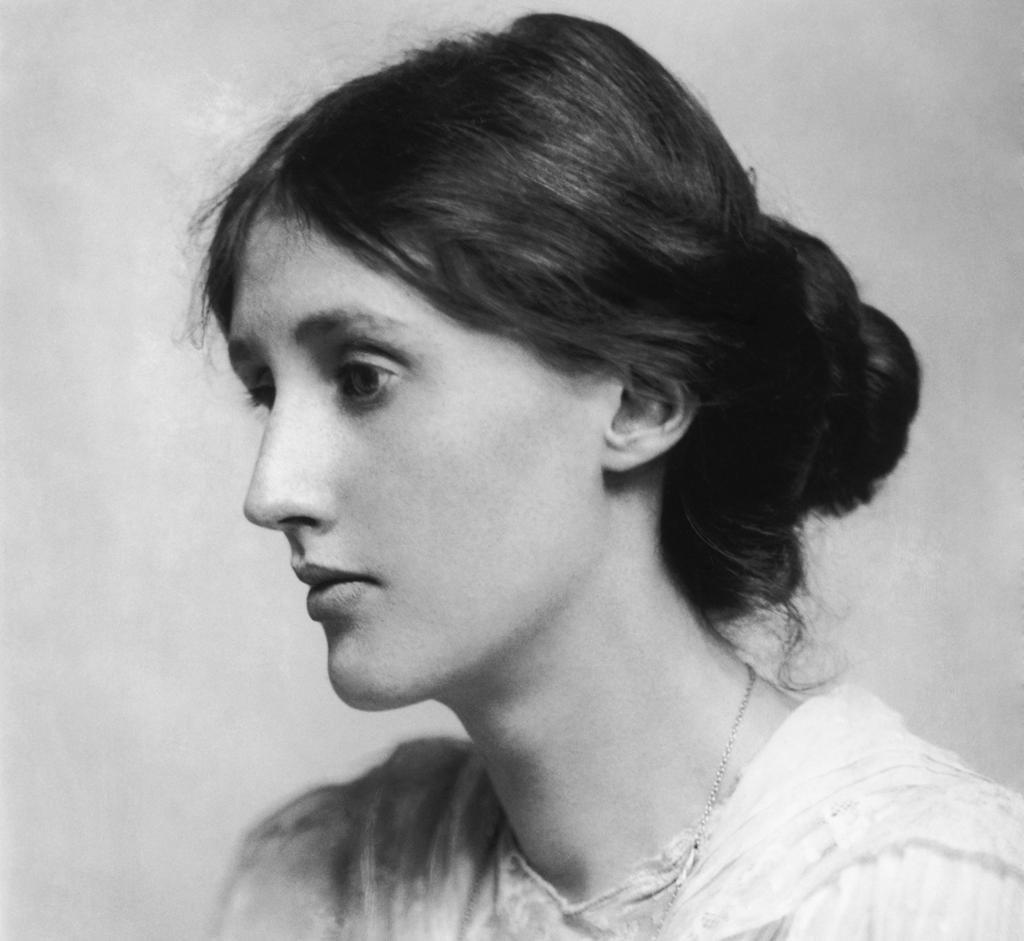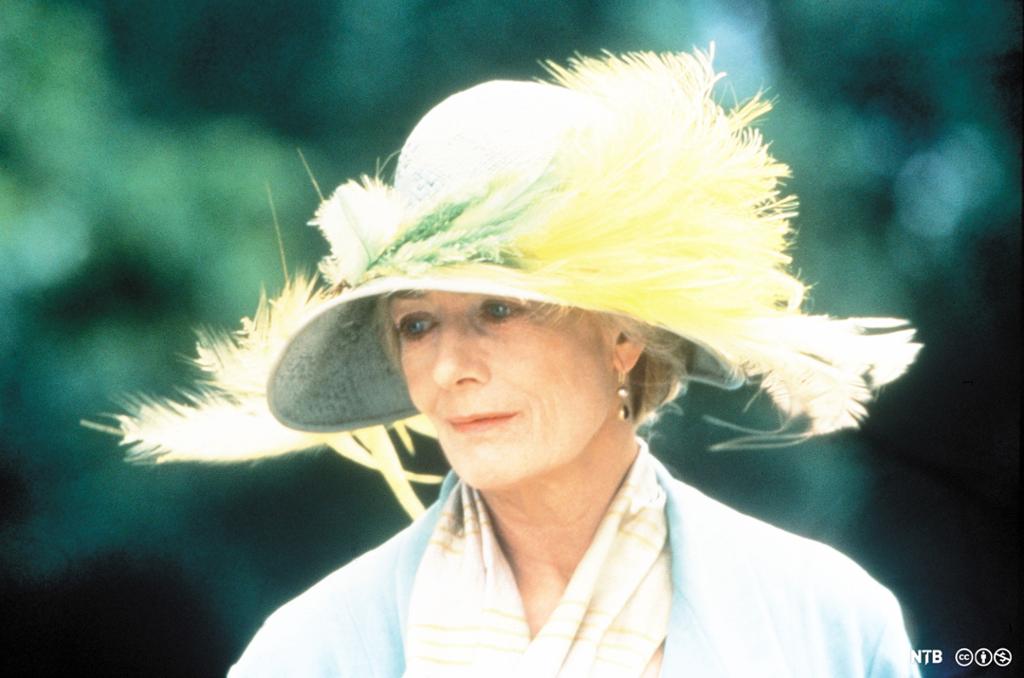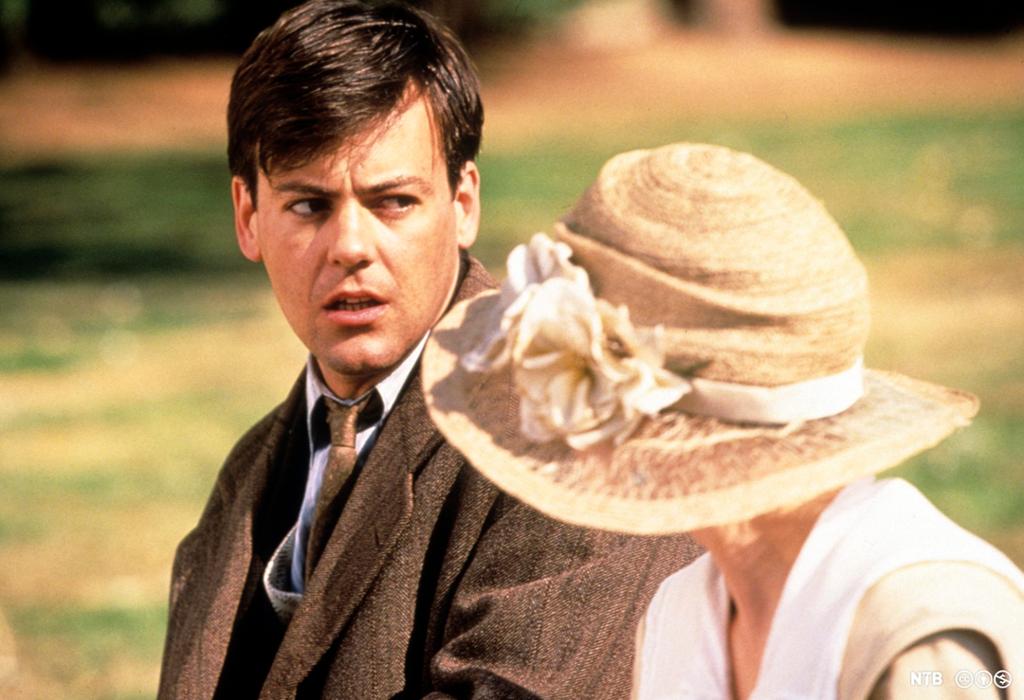Mrs Dalloway by Virginia Woolf

Mrs. Dalloway said she would buy the flowers herself.
For Lucy had her work cut out for her. The doors would be taken off their hinges; Rumpelmayer's men were coming. And then, thought Clarissa Dalloway, what a morning--fresh as if issued to children on a beach.
What a lark! What a plunge! For so it had always seemed to her, when, with a little squeak of the hinges, which she could hear now, she had burst open the French windows and plunged at Bourton into the open air. How fresh, how calm, stiller than this of course, the air was in the early morning; like the flap of a wave; the kiss of a wave; chill and sharp and yet (for a girl of eighteen as she then was) solemn, feeling as she did, standing there at the open window, that something awful was about to happen; looking at the flowers, at the trees with the smoke winding off them and the rooks rising, falling; standing and looking until Peter Walsh said, "Musing among the vegetables?"--was that it?--"I prefer men to cauliflowers"--was that it? He must have said it at breakfast one morning when she had gone out on to the terrace--Peter Walsh. He would be back from India one of these days, June or July, she forgot which, for his letters were awfully dull; it was his sayings one remembered; his eyes, his pocket-knife, his smile, his grumpiness and, when millions of things had utterly vanished--how strange it was!--a few sayings like this about cabbages.
She stiffened a little on the kerb, waiting for Durtnall's van to pass. A charming woman, Scrope Purvis thought her (knowing her as one does know people who live next door to one in Westminster); a touch of the bird about her, of the jay, blue-green, light, vivacious, though she was over fifty, and grown very white since her illness. There she perched, never seeing him, waiting to cross, very upright.
For having lived in Westminster--how many years now? over twenty,--one feels even in the midst of the traffic, or waking at night, Clarissa was positive, a particular hush, or solemnity; an indescribable pause; a suspense (but that might be her heart, affected, they said, by influenza) before Big Ben strikes. There! Out it boomed. First a warning, musical; then the hour, irrevocable. The leaden circles dissolved in the air. Such fools we are, she thought, crossing Victoria Street. For Heaven only knows why one loves it so, how one sees it so, making it up, building it round one, tumbling it, creating it every moment afresh; but the veriest frumps, the most dejected of miseries sitting on doorsteps (drink their downfall) do the same; can't be dealt with, she felt positive, by Acts of Parliament for that very reason: they love life. In people's eyes, in the swing, tramp, and trudge; in the bellow and the uproar; the carriages, motor cars, omnibuses, vans, sandwich men shuffling and swinging; brass bands; barrel organs; in the triumph and the jingle and the strange high singing of some aeroplane overhead was what she loved; life; London; this moment of June.

The violent explosion which made Mrs. Dalloway jump and Miss Pym go to the window and apologise came from a motor car which had drawn to the side of the pavement precisely opposite Mulberry's shop window. Passers-by who, of course, stopped and stared, had just time to see a face of the very greatest importance against the dove-grey upholstery, before a male hand drew the blind and there was nothing to be seen except a square of dove grey.
Yet rumours were at once in circulation from the middle of Bond Street to Oxford Street on one side, to Atkinson's scent shop on the other, passing invisibly, inaudibly, like a cloud, swift, veil-like upon hills, falling indeed with something of a cloud's sudden sobriety and stillness upon faces which a second before had been utterly disorderly. But now mystery had brushed them with her wing; they had heard the voice of authority; the spirit of religion was abroad with her eyes bandaged tight and her lips gaping wide. But nobody knew whose face had been seen. Was it the Prince of Wales's, the Queen's, the Prime Minister's? Whose face was it? Nobody knew.
Edgar J. Watkiss, with his roll of lead piping round his arm, said audibly, humorously of course: "The Proime Minister's kyar."
Septimus Warren Smith, who found himself unable to pass, heard him.
Septimus Warren Smith, aged about thirty, pale-faced, beak-nosed, wearing brown shoes and a shabby overcoat, with hazel eyes which had that look of apprehension in them which makes complete strangers apprehensive too. The world has raised its whip; where will it descend?
Everything had come to a standstill. The throb of the motor engines sounded like a pulse irregularly drumming through an entire body. The sun became extraordinarily hot because the motor car had stopped outside Mulberry's shop window; old ladies on the tops of omnibuses spread their black parasols; here a green, here a red parasol opened with a little pop. Mrs. Dalloway, coming to the window with her arms full of sweet peas, looked out with her little pink face pursed in enquiry. Every one looked at the motor car. Septimus looked. Boys on bicycles sprang off. Traffic accumulated. And there the motor car stood, with drawn blinds, and upon them a curious pattern like a tree, Septimus thought, and this gradual drawing together of everything to one centre before his eyes, as if some horror had come almost to the surface and was about to burst into flames, terrified him. The world wavered and quivered and threatened to burst into flames. It is I who am blocking the way, he thought. Was he not being looked at and pointed at; was he not weighted there, rooted to the pavement, for a purpose? But for what purpose?
"Let us go on, Septimus," said his wife, a little woman, with large eyes in a sallow pointed face; an Italian girl.
But Lucrezia herself could not help looking at the motor car and the tree pattern on the blinds. Was it the Queen in there--the Queen going shopping?
The chauffeur, who had been opening something, turning something, shutting something, got on to the box.
"Come on," said Lucrezia.
But her husband, for they had been married four, five years now, jumped, started, and said, "All right!" angrily, as if she had interrupted him.
People must notice; people must see. People, she thought, looking at the crowd staring at the motor car; the English people, with their children and their horses and their clothes, which she admired in a way; but they were "people" now, because Septimus had said, "I will kill myself"; an awful thing to say. Suppose they had heard him? She looked at the crowd. Help, help! she wanted to cry out to butchers' boys and women. Help! Only last autumn she and Septimus had stood on the Embankment wrapped in the same cloak and, Septimus reading a paper instead of talking, she had snatched it from him and laughed in the old man's face who saw them! But failure one conceals. She must take him away into some park.
"Now we will cross," she said.
She had a right to his arm, though it was without feeling. He would give her, who was so simple, so impulsive, only twenty-four, without friends in England, who had left Italy for his sake, a piece of bone.
The motor car with its blinds drawn and an air of inscrutable reserve proceeded towards Piccadilly, still gazed at, still ruffling the faces on both sides of the street with the same dark breath of veneration whether for Queen, Prince, or Prime Minister nobody knew. The face itself had been seen only once by three people for a few seconds. Even the sex was now in dispute. But there could be no doubt that greatness was seated within; greatness was passing, hidden, down Bond Street, removed only by a hand's-breadth from ordinary people who might now, for the first and last time, be within speaking distance of the majesty of England, of the enduring symbol of the state which will be known to curious antiquaries, sifting the ruins of time, when London is a grass-grown path and all those hurrying along the pavement this Wednesday morning are but bones with a few wedding rings mixed up in their dust and the gold stoppings of innumerable decayed teeth. The face in the motor car will then be known.
It is probably the Queen, thought Mrs. Dalloway, coming out of Mulberry's with her flowers; the Queen. And for a second she wore a look of extreme dignity standing by the flower shop in the sunlight while the car passed at a foot's pace, with its blinds drawn. The Queen going to some hospital; the Queen opening some bazaar, thought Clarissa.

Relatert innhold
Tasks and activities related to the excerpts from Mrs Dalloway by Virginia Wolf.